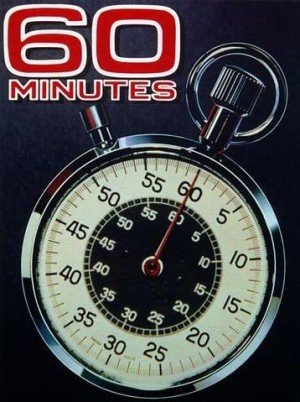Moving closer and closer to the conclusion of "Ten in '10," we have two vital issues to consider: the change in time; and the change in City Championships.
#3: *The Change in Time Rules…Again

(This is a silly, nonsensical picture that has nothing to do with the topic at hand…But I figured you'd like it anyways, so I went and ran with it.)
After a long time, 2009-2010 gave us a time system that apparently worked: swiss rounds decided in 40 minute games, which brought stalling to a standstill; and top cut rounds decided with a "four prizes must be pulled in game two for it to count" clause, which – while imperfect – kept decks from achieving cheap wins against bad matchups. All was good in the world of the competitive player…That is…
Until they changed it back, that is.
Yes, for reasons unknown to me, Play! Pokemon changed the rules "again": 40 minute matches were exchanged with 30+"3," where time is called, followed by three last turns before a result is decided on; and the aforementioned clause involving four prizes was completely eliminated. While the 30+3 is generally no big deal, the top cut rule has changed the way people play, and the deck choices that they make.
Don't believe me? If not, then consider the following example: Player A's Vileplume/Gengar deck is up against Player B's Gyarados deck. Player A's list is unquestionably good against Gyarados in almost any untimed match, but it's quick to fall down a prize or two versus it in most games.
Due to no fault of Player A's, he/she wins game one with little time on the clock left for game two. Given this, Player B's Gyarados proceeds to establish a 1-2 prize lead even after the +3, and brings the game into a sudden death…Which he or she also wins by the same mean.
So, in essence, we have a match won by a player who drew a grand total of 2-3 prizes, and no full games. Sounds good? Not by my book! Granted, you could still have the same thing happen during the 4-prize era last format (5-6 prizes between game two and sudden death), but it wasn't nearly as bad. As a result, the field is _not_ what it could, or should, be in many regards: either due to players wanting a more reasonable chance to win, or due to players using top cut-weak decks dropping for a calculated gain in premier rating.

("60 minutes+3" was so on the short list of titles for this program)
#2: The Advent of Pokemon TCG Marathons
(Again, not quite the same sort of "marathon," but they're still pretty cool guys.)
Why it mattered: for a very long time, City Championships – a major element of the Pokemon TCG premier tournament season – were viewed as minor, one-day events. While they were very useful in displaying a "preview" of sorts for who might do well in the season, these tournaments were never considered more than just small, fun events…Something akin to modern day Battle Roads, but with juicy prizes.
However, thanks to a couple of industrious Premier Tournament Organizers in Georgia, that conception has been shattered. By stringing together all of their City Championships in a row over the holiday season, rather than staggering them across several weekends for a two month period, they laid the groundwork for an efficient, new model of running these events. For the competitive player, though, this was far more valuable due to the increased opportunity to do well at several of these tournaments in a row, thus greatly increaseing his/her premier rating, which has since 2006 become a crucial tool in achieving invites to the World Championships.
Because of this efficiency, and because of the great incentive, Greg and Gary's tournaments finally caught national attention at the beginning of 2010, when anyone with a My Pokemon account could see the great impact that these events had on people's ratings, with at least one player achieving enough points to already assure his invite to the World Championships. Given this, many players this season found themselves inspired to make the trek down to Georgia during late 2010, and as a result, several of the current, post-Cities Top 40 were individuals who attended the marathons.
Recognizing the value of this model, several areas, such as Ontario and New Jersey, have adapted Georgia's plan: either as a full-blown marathon, or as a "mini-thon" of sorts. Is this a trend in the way Cities will be organized nationwide? Perhaps, but I think the biggest implication of all is the proliferation of hyper-competitive fields at relatively low levels of earning. Without a doubt, it'll be interesting to see if more City Championships ascend to the State/Regional-esque tier that the Georgia events did, but the fact that these events are no longer "little" is quite telling.
All in all, 2010 was an extremely significant year for Cities, with marathons leading the way. Congrats to the PTOs of Georgia, New Jersey, and Ontario for revolutioninzing the way we please this game!
(Who would've thought that Georgia would become so crucial to the Pokemon TCG scene?)
